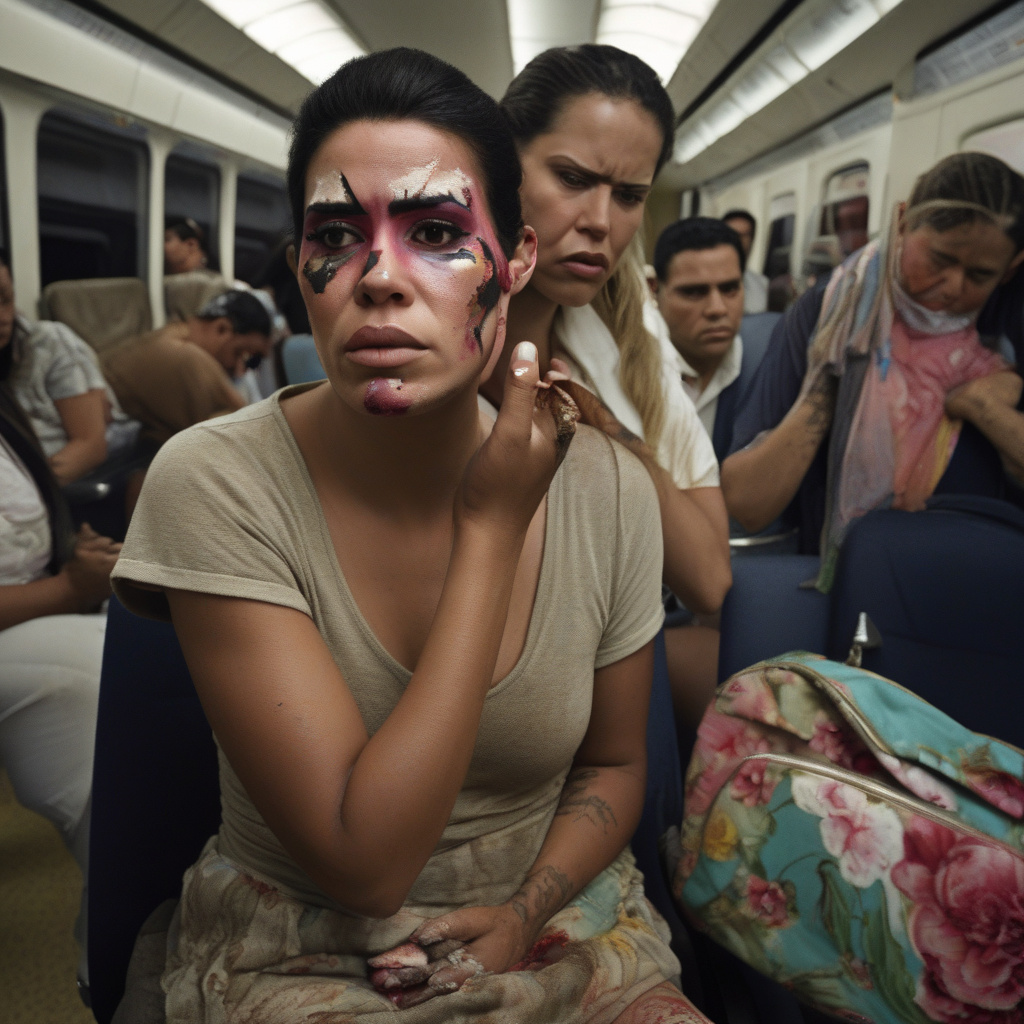Venezuelan Makeup Artist Returns Home, Describes Torture During El Salvador Detention
The story of Andry Hernandez Romeo, a Venezuelan makeup artist, sheds light on the alarming practices involved in U.S. immigration enforcement, particularly concerning the treatment of detainees in El Salvador’s mega-prison system. Hernandez’s experience not only raises questions about the human rights implications of these tactics but also highlights the urgent need for reform in how immigration issues are handled across borders.
Hernandez, who fled the political and economic turmoil in Venezuela, sought a better life in the United States. However, his journey took a dark turn when he was detained in El Salvador, where he claims to have faced severe abuse and torture. His story is not an isolated incident but rather part of a troubling trend that has emerged in recent years regarding the treatment of vulnerable populations in detention facilities.
During his time in the El Salvador detention center, Hernandez reported experiencing physical and psychological torture. He described in harrowing detail the conditions he endured, which included overcrowded cells, lack of basic sanitation, and constant fear of violence from both guards and fellow inmates. Such conditions not only violate international human rights standards but also contradict the very principles that many countries claim to uphold when it comes to human dignity and justice.
The U.S. immigration tactics that led to Hernandez’s detention are also under scrutiny. In recent years, the U.S. has increasingly relied on third countries like El Salvador to detain immigrants who are seeking refuge. This approach raises significant ethical questions, particularly given the reports of abuse and neglect in these facilities. Critics argue that outsourcing detention not only avoids accountability but also places vulnerable individuals at greater risk of harm.
Hernandez’s account has sparked discussions about the broader implications of U.S. immigration policies. His experience highlights the need for more humane handling of asylum seekers and immigrants. Many individuals fleeing violence and persecution arrive at U.S. borders seeking safety, only to find themselves in a system that often treats them as criminals. This contradiction is at the heart of the current immigration debate, where the focus on security often overshadows the need for compassion and understanding.
In addition to the immediate consequences for individuals like Hernandez, the situation raises questions about the long-term impact of such policies on U.S. relations with Central American countries. By collaborating with nations that have questionable human rights records, the U.S. risks damaging its reputation and undermining efforts to promote democratic values in the region. As Hernandez’s story illustrates, the ramifications of these choices extend far beyond the borders of any single country.
It is essential for policymakers to consider the personal stories of those affected by these immigration practices. Hernandez’s return to Venezuela is a reminder of the people behind the statistics. Each case of detention represents an individual with hopes, dreams, and a desire for a better life. When these stories are ignored, the human cost of immigration enforcement becomes obscured.
In response to growing public concern, advocacy groups are calling for systemic changes to immigration policies. They argue that the U.S. must take responsibility for its role in the treatment of detainees and ensure that individuals seeking asylum are treated with dignity and respect. This includes reforming detention practices, providing necessary mental health support, and ensuring that legal rights are upheld for all individuals in the immigration process.
The alarming accounts from detainees like Hernandez serve as a critical wake-up call. They remind us that immigration is not merely a political issue; it is a humanitarian one. As nations grapple with the complexities of migration, it is vital to prioritize the protection of human rights and the dignity of all individuals.
Andry Hernandez Romeo’s return home is not just a personal victory; it is a stark reminder of the challenges faced by countless others in similar situations. The stories of those who have suffered in silence must be amplified to drive change and inspire a re-evaluation of current immigration practices. Only by addressing these abuses can we hope to create a more just and equitable system for all.
#VenezuelanArtist, #ImmigrationReform, #HumanRights, #ElSalvador, #AsylumSeekers
